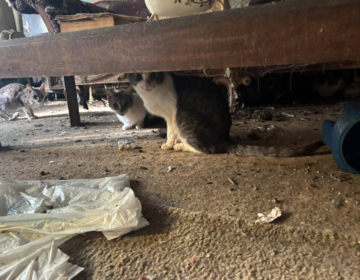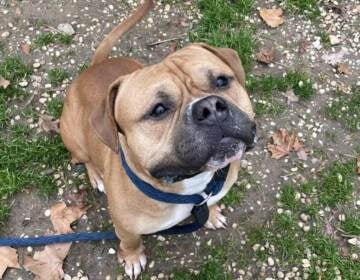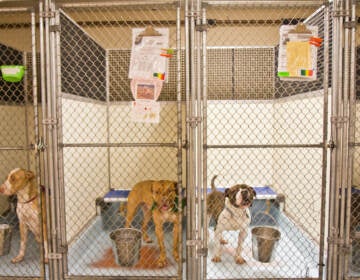At barns, breweries and bookstores, Philly’s ‘working cats’ get a second chance through non-traditional adoption
Their adoptions are atypical but give the felines what they need: safe and sheltered forever homes with limited human interaction.
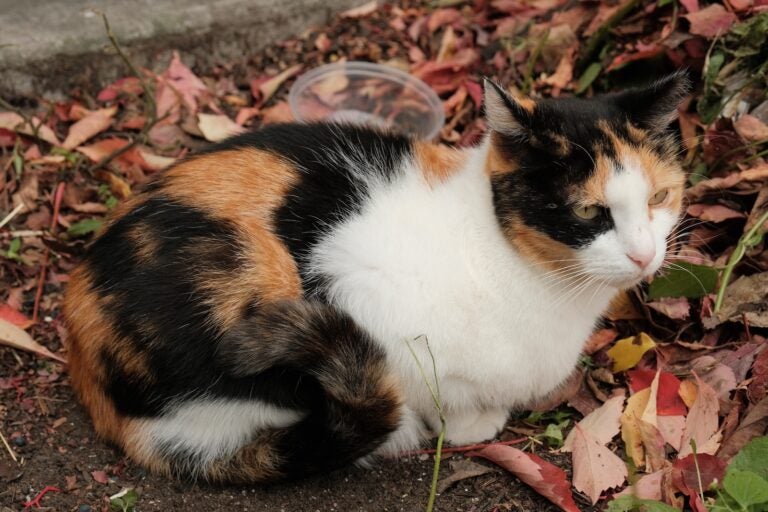
After being adopted and returned several times, Honey has become much calmer living outside as one of ACCT Philly's ''working cats.'' (Ben Bennett/WHYY)
From Philly and the Pa. suburbs to South Jersey and Delaware, what would you like WHYY News to cover? Let us know!
Suki paces around her office before selecting a spot to sit — between two chairs, in front of the desk. Then she hisses.
Most cats in Philadelphia enjoy long days of bathing in the sunlight or watching passersby from a windowsill. Once in a while, they may even catch a mouse or two. Almost a quarter of all Philly households have at least one cat companion, with more than a half-million pet cats across the city.
But not all cats are cut out for this laidback lifestyle.
Suki is a part of the Animal Care and Control Team of Philadelphia’s working cats program. The goal is to place cats who may not flourish in a traditional home setting in an environment best suited to their unique sensibilities: barns, breweries and bookstores, among other places.
ACCT Philly’s program has been around for almost a decade, but not many are aware of its existence, says Mikayla Allen, the shelter’s communication coordinator.
“A lot of people think about your Philly street cats, and then you have the cats you adopt,” Allen said. “They don’t think about the cats that really can’t survive outside by themselves.”
The program currently has seven working cat candidates — five at its facility on Hunting Park Avenue in North Philadelphia, and two in foster care. These temporary homes can give the cats a chance to acclimate to a more traditional living style. Not all are able to make that change, though.
Bread was rescued from a hoarding situation as 1 of 30 cats. He was brought to ACCT — the city’s only open-intake animal shelter — before heading into foster care. Feeling uncomfortable in the home environment, Bread bit his owner while being bathed and was returned to the shelter.
Melina Williams, ACCT’s community cat coordinator, says the cat then decided “he was going to waste away” in the kennel. At that point, the best option was to try to make Bread a working cat. He was crated and placed in a shed with the other outdoor cats and, after a four-week period, it seemed like Bread was a whole new cat.
“This is an actual behavioral turnaround,” Williams said, describing how the program helped Bread.
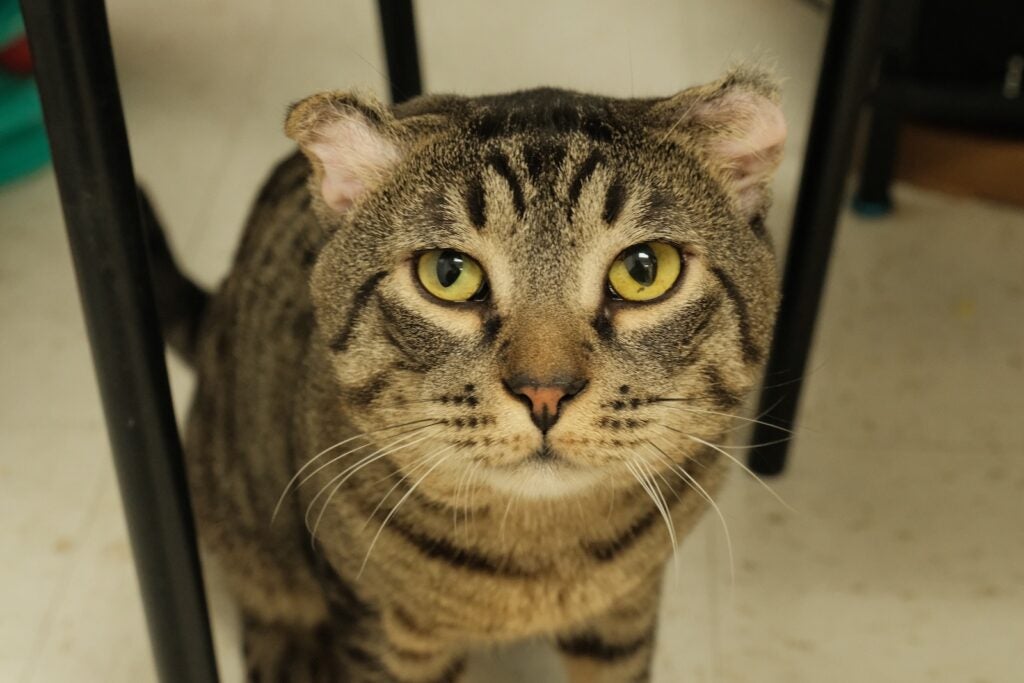
All of ACCT’s working cats share similar traits: they like their independence and don’t particularly like to cuddle.
Honey, another working feline, displayed similar behavioral issues. She had been adopted and returned about seven times, according to Williams.
Honey liked to “play rough,” sometimes too rough for the other cats. Her aggressiveness didn’t stop at her fellow felines, and she often lunged at shelter staff. Now living outside, Honey has mellowed out.
Bread and Honey both live in a shed adjacent to ACCT’s facility alongside working cat Star. Out of the trio, Star shoulders much of the “work”: she catches birds and, occasionally, rats.
“Star actually does her job,” Williams said, before jokingly adding, “all Honey does is cause problems.”
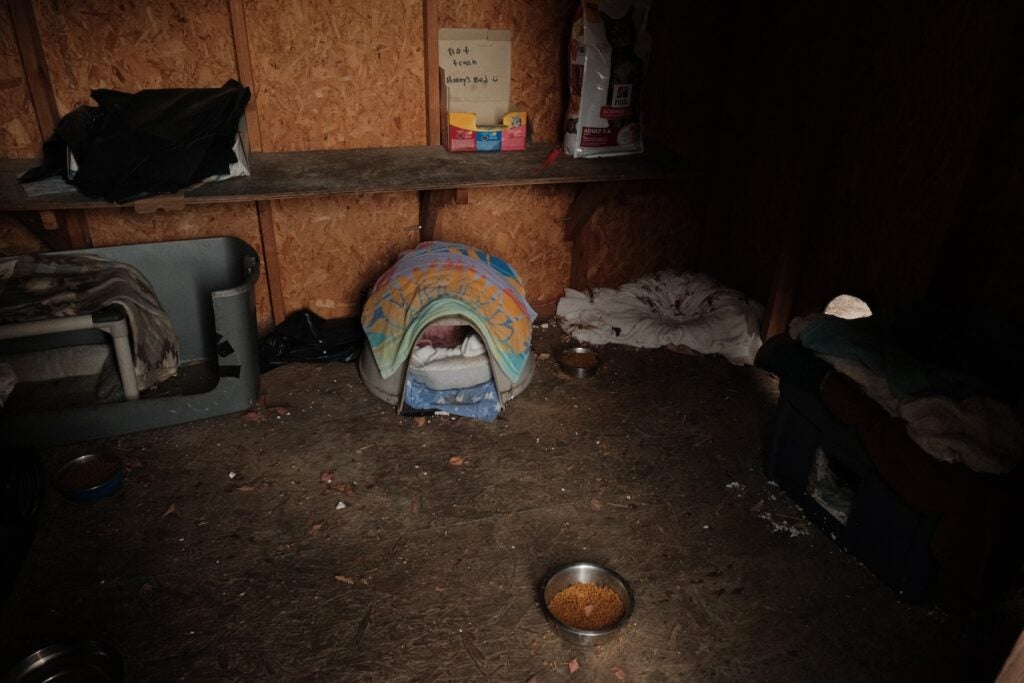
With behavioral problems and adoption returns, these cats can otherwise become likely candidates for humane euthanasia. But with the program, the cats can find permanent living spaces that better suit them.
“It’s cute,” Williams said, describing the idea of seeing the cats at work. “But it’s a last resort.”
Placing working cats is more of a challenge than the standard adoption process. Some potential adopters are hesitant when they hear the cats won’t be super friendly or cuddle on your lap.
ACCT works to open up the working cats to human interaction, taking them out of the kennel enclosures and into offices in the building, giving them more space to run around. Suki, one of the shelter’s office cats, has seen behavior improvements, Williams said, but she still has a ways to go.
Further information
- Animals available for adoption: Dogs | Cats
- How to help: Volunteer | Foster | Donate
- Other resources: Pet owners in need | Lost pets | Pet surrenders
When working cats find the right combination of owner and environment, the program has shown to be successful, placing roughly 50 felines in forever homes since 2021.
Applejack was picked up from the shelter about a year ago to work as a barn cat on an expansive farm.
When Allen spoke with the owner recently and asked how the former ACCT resident was doing, “he said [Applejack] is literally the best working cat he’s ever had,” Allen said.

Saturdays just got more interesting.
WHYY is your source for fact-based, in-depth journalism and information. As a nonprofit organization, we rely on financial support from readers like you. Please give today.


